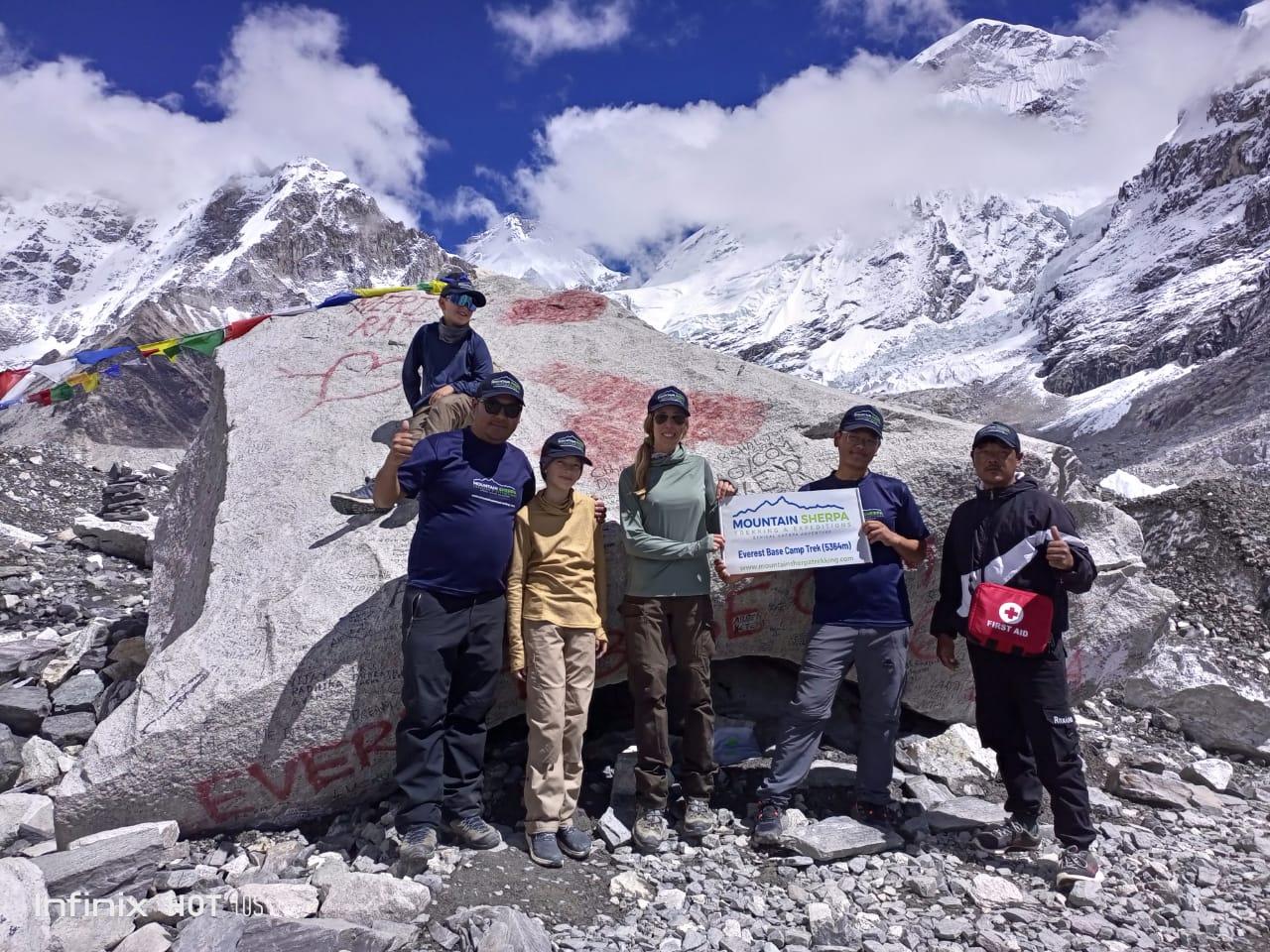-
Pasang Sherpa (Managing Director)
+977-9851060947
Since 1998 15,000+ Happy Guests Sherpa Owned & Operated Company

ALTITUDE SICKNESS ON EVEREST BASE CAMP TREK
Altitude sickness, also known as Acute Mountain Sickness (AMS), happens when you travel to high altitudes where the air pressure and oxygen levels are lower than at sea level. This makes it challenging for your body to receive enough oxygen. It typically becomes a concern above 4000 meters (13,000 feet), especially if you haven't acclimatized properly beforehand.
To prevent altitude sickness during the Everest Base Camp Trek, it's crucial to acclimatize well before heading to higher elevations. This means gradually ascending, staying hydrated, getting adequate rest, eating nutritious meals, and maintaining a steady walking pace. Rather than focusing solely on reaching your destination quickly, it's important to appreciate every aspect of the trek. Take the time to soak in the stunning natural surroundings, connect with the local Sherpa community, and experience their unique culture. By taking a slow and steady approach, you'll ensure a safer and more enjoyable journey at high altitudes.
Does the Mountain Sherpa Trekking EBC Trek itinerary include enough days for proper acclimatization?
Yes, our 16-night, 17-day Everest Base Camp trek itinerary includes ample time for acclimatization. We spend 2 nights in Namche Bazaar (altitude: around 3,440 meters or 11,286 feet), 2 nights in Pangboche village (altitude: about 3,985 meters or 13,074 feet) with a day hike to Ama Dablam Base Camp, and 2 nights in Dingboche (altitude: approximately 4,410 meters or 14,468 feet). These stops allow our trekkers to adjust to the altitude gradually, reducing the risk of altitude sickness. This careful approach enhances safety and ensures a more enjoyable trekking experience.
What strategies can Mountain Sherpa guides use to ensure proper acclimatization while trekking to Everest Base Camp?
Mountain Sherpa Trekking expert guides ensure that Everest Base Camp trekkers acclimatize effectively through two main strategies. First, they maintain a steady walking pace that accommodates each guest's speed, demonstrating patience and flexibility throughout the journey. Second, they plan daily hikes to higher altitudes where trekkers spend some time before descending to lower altitudes for overnight stays. This method allows the body to gradually adjust to the decreasing oxygen levels as altitude increases, thereby minimizing the risk of altitude sickness. These careful practices are designed to enhance safety and ensure a more enjoyable trekking experience for all participants.
How do Mountain Sherpa guides respond if a trekker feels unwell, and what alternatives might they suggest?
If you feel unwell in Namche or any other place during your trek, it's important to inform your guide immediately. Our expert Sherpa guides will provide advice and suggest alternative hikes if needed. We strongly recommend not continuing to ascend if you have symptoms of Acute Mountain Sickness (AMS). If your condition worsens or if you show signs of High Altitude Cerebral Edema (HACE) or High Altitude Pulmonary Edema (HAPE), it's crucial to descend immediately. In emergency situations, we arrange for a helicopter promptly.
In our 26+ years of experience, we have never encountered serious issues on our Everest Base Camp treks because our carefully crafted itinerary ensures proper acclimatization for our valued guests. We have successfully organized treks for people ranging from 7 to 77 years old without any problems. Your safety and well-being are our top priorities, and we are prepared to handle any situation to ensure you have a safe and enjoyable trekking experience.
THE SYMPTOMS
On the Everest Base Camp trek, many trekkers may start experiencing symptoms of Altitude Sickness in Dingboche or Lobuche due to insufficient acclimatization before reaching these high altitudes. These symptoms can include headaches, nausea, dizziness, breathlessness, loss of appetite, and possibly palpitations.
It's crucial not to continue ascending if your symptoms do not improve. If your symptoms worsen at the same altitude, descending is necessary. Symptoms such as vertigo, vomiting, apathy, staggering, and severe breathlessness require an immediate accompanied descent. Failing to descend promptly can have serious consequences, as these symptoms may indicate severe altitude-related conditions.
Altitudes:
Understanding and responding to these symptoms promptly can help ensure a safer and more enjoyable trekking experience at high altitudes like those encountered on the Everest Base Camp route.
Preventing Altitude Sickness
When trekking in high mountain areas, it's advised to avoid climbing more than 300 meters per day once you're above 3000 meters. However, this guideline is challenging to follow on the Everest Base Camp trek.
If you start experiencing early signs of mountain sickness, take a day to rest at the same altitude. If the symptoms persist or worsen, it's important to descend at least 500 meters.
Acetazolamide (Diamox) can be helpful in preventing mountain sickness if you can't guarantee a gradual ascent, but it shouldn't replace the need for a gradual climb. Diamox helps by balancing the body's acid-base levels and stimulating breathing. Make sure to drink plenty of fluids while taking it.
For adults, the dosage is 125 mg to 250 mg twice a day. Begin taking Diamox 24 hours before you start your ascent and continue for the first 2 days at high altitude to aid in acclimatization. Diamox should generally not be used in young children unless under close medical supervision.
Choose 26+ Years Experience Expert Sherpa Company for Safety
For a safe and memorable Everest Base Camp trek, trust a reputable Sherpa company. Expert guides ensure proper acclimatization, provide valuable support, and prioritize your well-being. With years of experience and deep local knowledge, a trusted Sherpa company offers the best chance for a successful and enjoyable adventure in the Himalayas.
As one of the leading Sherpa companies in Nepal, your safety and well-being are our top priorities. We are committed to ensuring your holiday in Nepal is both enjoyable and unforgettable.
If you're seeking a safe and exciting Everest Base Camp trek through the stunning Khumbu Valley, please reach out to us via email or WhatsApp. You can also stay updated with us on Instagram and Facebook for the latest news and updates. We eagerly anticipate the opportunity to assist you in creating a remarkable adventure in Nepal.

E-mail: info@mountainsherpatrekking.com
![]()
Write us to on WhatsApp: +977-9849643731